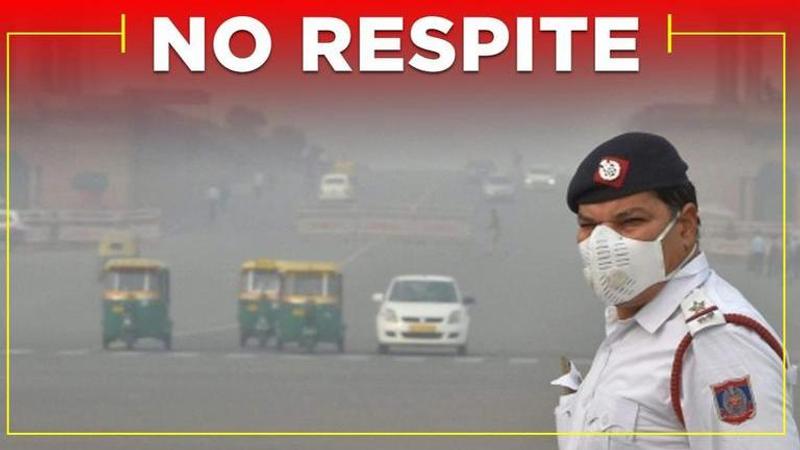Published 12:01 IST, October 30th 2019
Delhi breathes 'hazardous' air post Diwali as AQI dips to 423
Delhi woke up on Wednesday breathing from a thick layer of smog again. The air quality index (AQI) was hovering around 423 (hazardous category) at 10 am.

Delhi woke up on Wednesday breathing from a thick layer of smog again. The national capital along with its adjoining satellite cities such as Noida, Gurugram, Ghaziabad, and Faridabad yet again encountered threatening air pollution post-Diwali. According to the System of Air Quality and Weather Forecasting and Research (SAFAR), the air quality index (AQI) was hovering around 423 at 10 am. This puts it under the hazardous category.
The PM (Particulate Matter) 2.5 level spiked by nearly five times on Diwali night (October 29). This data points to the rampant violation of the Supreme Court's order that set a two-hour window for bursting crackers during Diwali. Locals of Delhi NCR complained of breathing problems, eye irritation, and suffocation due to a prevailing thick blanket of smog on Wednesday morning.
"The pollution level has increased in Delhi especially after Diwali. I feel breathless while going for a walk. There should be a complete ban on the bursting of crackers. The government must also take some strict measures to stop stubble burning," said Manju Singh, a resident of Shahdara area.
Dharmendra Singh, a resident of Chandni Chowk complained that he has developed eye allergy due to an increase of the dust particles in the air. "My eyes have become watery due to air pollution. There so much smog in Delhi and its nearby areas. I do not know what to do." Asha Dhavan of Greater Noida said that asthmatic patients are the worst ones to be hit by the poor quality of air. "The excess pollution during Diwali makes life difficult for everyone; we all end up inhaling smoke. It is tough to breathe," Dhavan said.
Delhi has a neighbour problem
Keeping aside the air pollution in Delhi due to Diwali firecrackers, the rampant burning of crop residue in northern neighbours Punjab and Haryana also contributes to the city's woes. The latest satellite data released by US space agency NASA suggests a drastic spurt in crop residue burning in the neighbouring states. The plume of smoke from farmlands in north-west regions of Delhi has become one of the significant factors in adversely affecting the national capital's air quality. "The effective stubble fire counts of Haryana and Punjab have increased from 1,654 to 2,577 during the past 24 hours, which is a matter of extreme concern for the residents of Delhi," NASA stated.
(With ANI inputs)
Updated 13:22 IST, October 30th 2019




